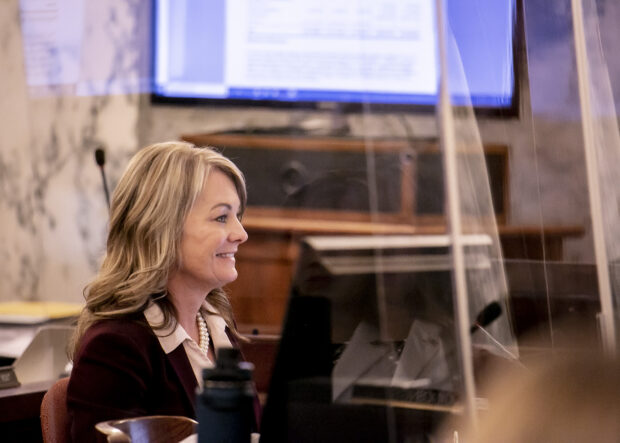The State Board of Education will not ask the 2022 Legislature to ease educational requirements for school psychologists, as the State Department of Education previously proposed.
The SDE recommended allowing schools to hire psychologists who hold a bachelor’s degree or higher, rather than a master’s as is currently required. This happened after SDE facilitated a work group of educators, legislators and stakeholders in educator prep programs, according to Tracie Bent, the State Board’s chief planning and policy officer.
“While generally, we do have trouble hiring those positions, particularly in our rural areas,” said Bent, the proposed change was “more related to funding and the amount of money that (districts) have.”
Facing majority opposition from public commenters, psychologists among them, the State Board — including state superintendent Sherri Ybarra, who heads the SDE — unanimously voted against the rule change.
Said board member Linda Clark, “I don’t think we have enough of anything. But I’m not at the point where I’m willing to reduce the requirements in order to” hire more school psychologists.
The board passed a batch of other rules, some of which would cut out redundant language in Idaho administrative code, and others to renew existing state education rules.
Another would change administrative code so that high school students could take college entrance exams as juniors or seniors, rather than being expected to take such a test as a junior. That aligns with another rule change that Bent said the board first proposed in August, which would remove the college entrance exam as a high school graduation requirement.
The board’s push to axe the testing mandate comes after it dropped college entrance exams as a statewide requirement for admission to state colleges and universities in June, leaving it up to public four-year institutions to decide whether to require the SAT or ACT.
The board approved all five rules on its agenda unanimously.
The proposed changes will go into effect June of next year unless both chambers of the Legislature reject them. Other rules that would reup existing fees in schools, however, will have to get the nod from both chambers to be renewed.
A repeat change to school funding?
School district officials have worried they’ll lose money this school year due to coronavirus-induced absences, because the state parcels out money based on students’ average daily attendance. That wasn’t the case last school year, when the State Board temporarily switched to divvying up funds based on total enrollment – a stopgap meant to stop districts with widespread absences from bleeding money.
Now, the board will consider again allocating money based on districts’ total enrollment, this time for the 2021-22 school year, Bent said Monday. That discussion is expected next month when the Board has a meeting scheduled on Dec. 15.
Come December, a repeat change could pull support from Ybarra, but it’s unclear.

“Superintendent Ybarra has long supported moving to enrollment-based funding rather than Average Daily Attendance (ADA), and the need for that change is more pressing since the pandemic hit and changing conditions forced districts to move between in-person learning, online learning and hybrid models that combine the two,” SDE spokesperson Kristin Rodine told EdNews in a prepared statement last month. “As for whether the state board should pass another temporary rule to revert to enrollment-based funding for this school year (2021-22), that may be worth discussing.”
Those fall enrollment numbers largely rebounded in K-12 schools, as EdNews reported, but that varied district by district.
An agenda for the board’s December meeting hasn’t yet been set.
